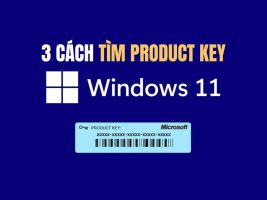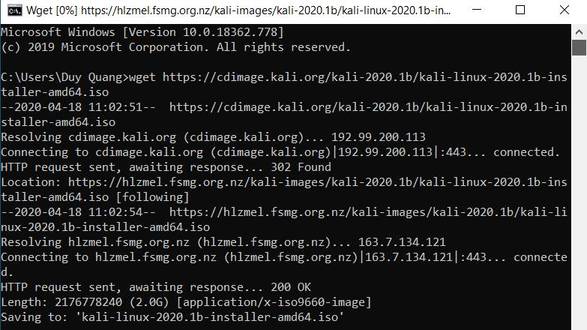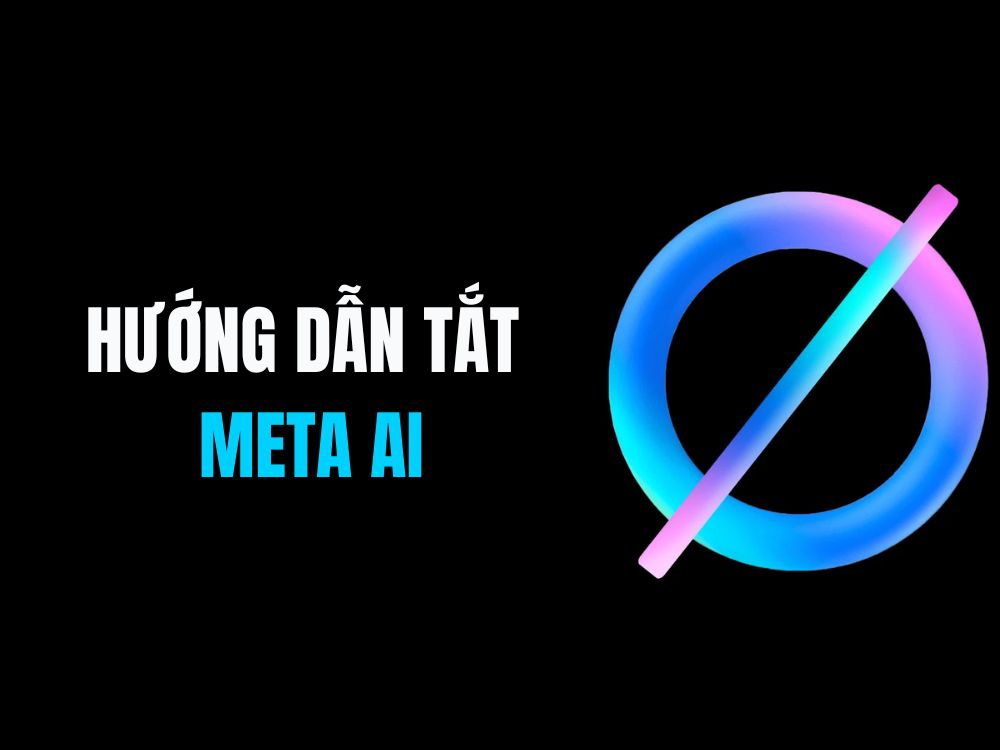Python is an open source, interpreted, and general-purpose programming language. It follows Java and C functionally. Python is easy to learn, and as a language with high-level programming capabilities, some sites that use Python are Reddit, Pinterest, YouTube, and Instagram. As one of the most popular programming languages, Python is heavily used in modern development trends such as machine learning. Also, if you are new to programming, Python is where you should start your programming journey.
| Join the channel Telegram of the AnonyViet 👉 Link 👈 |

Every passing day brings new advancements in technology, and now times have changed that only the oldest companies can thrive. Along with that, the capacity and quality of specialized languages is also growing at a rapid pace. That’s one of the main reasons why it’s so difficult to choose the most appropriate programming language for your next project. It is difficult to pick one out of all the technologies and that is why this article will discuss the two most popular programming languages, .Net and Python.
Python and .Net are both popular programming languages in 2021. Both are based on OOP (object-oriented programming) concept, easy to learn and code, and offer fast and efficient development. great capacity. Each of these languages has its own advantages. Now, let’s discuss which language is best for your next project and why? Python vs .Net. But before diving into the differences, let’s give a quick introduction to both languages.
Overview of .Net
C# or C-Sharp is a powerful and high-level programming language that strictly adheres to traditional C++ and C constructs; however, it has improved and is easier to learn. It is used to develop a large number of complex and large-scale applications. C# code can be compiled on different platforms; This object-oriented programming language has structural similarities, much more in common with Java. You’ll find C# in cutting-edge technologies like Microsoft HoloLens and sites like Stack Overflow.
Advantages of C#:
C# is a multi-paradigm programming language; Here, classes are grouped into one or more namespaces allowing you to create a set of reusable libraries.
1) Cross-platform app:
Microsoft has released a new version of the C# .NET framework, which is compatible with Linux, Windows and MAC operating systems. .NET Core provides forward-looking development, an enhanced version of .NET, improved adaptability and scalability. Improvements are updated in each subsequent version of this language.
2) Overload
C# offers flexibility in overriding functions, which means having the same name but different parameters to meet other application requirements.
3) Garbage collection
Garbage Collector automatically maintains memory in .NET applications. It continuously removes and cleans all the garbage. Every time an object is called by a function, the CLR (Common Language Runtime) allocates memory with an updated graph.
4) Language .Net
C# is also known as .Net language. That’s because it promotes interoperability, i.e. it can access any code written in the .Net framework. In addition, you can also access COM components, which is easier to do than in any other language.
5) Abstraction
The general purpose of abstraction is not to be tied to a concrete member. In C#, this idea means that a class or method need not be associated with a particular instance.
6) Security
ASP.NET Core allows developers to quickly configure and manage the security of their applications. It includes features for maintaining authentication, authorization, HTTPS enforcement, data protection, application confidentiality, CSRF/XSRF prevention, and CORS management. These security features allow you to develop powerful yet secure ASP.NET Core applications. ASP.NET also provides the following authentication and authorization: Windows authentication, forms-based authentication, passport authentication, etc.
7) LINQ
The Microsoft partnership has provided LINQ as a powerful component with C#. LINQ is a .NET element that allows native query processing directly in C#.
Main features:
- Simple, powerful and extensible.
- High-level structured programming language.
- Integration with the .NET framework. Modern syntax, easy to learn.
- Extensive standard library.
- Code safe, C# doesn’t allow untrusted casts.
- Fast compilation and execution times.
Applications of C#:
- Games using Unity
- Class Library
- Web Application, Client-Server Application
- Windows applications that run on the desktop
- Console Application
- Web service application
Python Overview
Python is an open source, interpreted, and general-purpose programming language. It follows Java and C functionally. It’s easy to learn, and it’s a high-level programming language — sites that use python are Python Reddit, Pinterest, YouTube, and Instagram. As the most popular programming language, Python is widely used in modern development trends such as machine learning. Also, if you are new to programming, Python is the language you should start your programming journey with.
Advantages of Python:
1) Data structure: Python handles the conversion of data types at runtime when the application starts. Thus, it provides the dynamic execution of a program, making it easy for programmers to understand.
2) Readability: Python has the potential for exceptional readability, resulting in properly written code. Python includes PEP 8 documentation available for programming language formatting.
3) Integration of third parties: With the help of the Python Package Index (PyPI), Python can integrate a large number of third-party modules.
4) Open source code: Python has an active support community that contributes significantly to stabilizing and deeply exploring a language. Furthermore, it is free to use under the GPL (a free software license).
5) Mobile: In the case of system-dependent functionality, this program can run on different platforms without modifying the code.
6) Supports major libraries: Python has a vast library and you can experience most of the necessary functions there, such as string processing, web service stuff, internet, etc.
Main features:
- Python is developed under an open source license.
- Supports both structured and functional programming and object-oriented programming.
- Easy to code, maintain, and read.
- A solid, compatible and portable standard library on different platforms like Windows, Unix or Mac.
- It also supports garbage collection.
Python applications:
- Prototyping
- Software development and language development
- GUI-based desktop applications
- Graphic design and games
- Image processing applications
- Commercial and Enterprise Applications
Comparison between C# and Python
Now that we have a basic understanding of these two languages, let’s compare them in more depth to understand some of the key differences:
1) Easy to use
C#
C# developers often need to have a basic knowledge of the structure of the language in the form of functions and classes. So, C# is a perfect choice for those with Java experience.
Python
Python does not need to know the different constructs of the language. Because Python developers can learn and understand more in the process of coding.
2) Speed of programming and development
C#
C# provides a set of predefined libraries that can be used in a particular syntax. You can also use some tips and tricks to speed up programming in C#.
Python
Python is an extremely readable programming language that places more emphasis on coding than learning the syntax. It has simple syntax and doesn’t require extra semicolons in each line of code to separate line statements.
3) Dynamic and Static
C#
C# is a static programming language. Therefore, it should compile the written code before running any program and identify compilation errors. For example, data types must be defined before execution. Otherwise, the program will throw an exception and fail to compile.
Python
Python is a dynamic programming language. It does not require any variable declaration, which means that the data type of the calling variables will be determined at runtime. In Python, the process is simpler and faster – it runs instantly.
4) Performance
C#
C# is a programming language compiled to extend the compile time of a program. As a result, writing code takes more time and effort, but produces more efficiency in execution.
Python
Python is an interpreted language; so its speed depends on the coder. However, it also runs very fast when the program starts.
5) Applications
C#
C# is an object-oriented programming language used to develop applications ranging from desktop to game development. However, when it comes to implementing machine learning applications, C# is still limited in terms of libraries.
Python
Python is an open-source, multi-paradigm language, and an extremely popular choice for machine learning. It is used to develop highly scalable applications with well-known libraries like NumPy, Pandas, TensorFlow, etc.
6) License
C#
C# has an official IDE i.e. paid Microsoft Visual Studio software for large businesses and organizations. It also has a free version for small communities and individual developers but with limited functionality.
Python
Python is a general-purpose programming language licensed under the GPL. It is open to anyone and can be added to the Python community. It is significantly cheaper than C#, which requires licensing costs to build .NET applications.
Conclusion
Now that we’re done with this article, we need a bit more clarification on the same question: Python versus .Net (#C)? It is not easy to choose which is best. Furthermore, it is difficult to compare because these tools are extremely different and serve different purposes. These two high-level programming languages are easy to learn and code. They provide high performance and allow implementation of object-oriented concepts. C# is widely used in business applications, while Python is more flexible and easier to learn.
Python seems more great for data analysis, machine learning, while .NET is ideal for developing scalable and powerful business applications. In terms of community support and some interesting open source projects, Python is better. However, Microsoft offers more interesting features in terms of productivity and optimization, especially with .Net Core, which is very popular.
Python can be the optimal choice if your project depends on high speed and performance. It is easy to learn, provides options for smooth cross-platform development, and provides developers with a useful open source library that speeds up the development process. However, if your project needs top performance, Microsoft integration and depends on standard libraries and syntax, then C# is the better choice.
Also you can also learn more about some python projects here.


![[Lập Trình Game] Instructions for using AutoTile when designing games with Godot [Lập Trình Game] Instructions for using AutoTile when designing games with Godot](https://anonyviet.com/wp-content/uploads/2020/04/image005.png)





